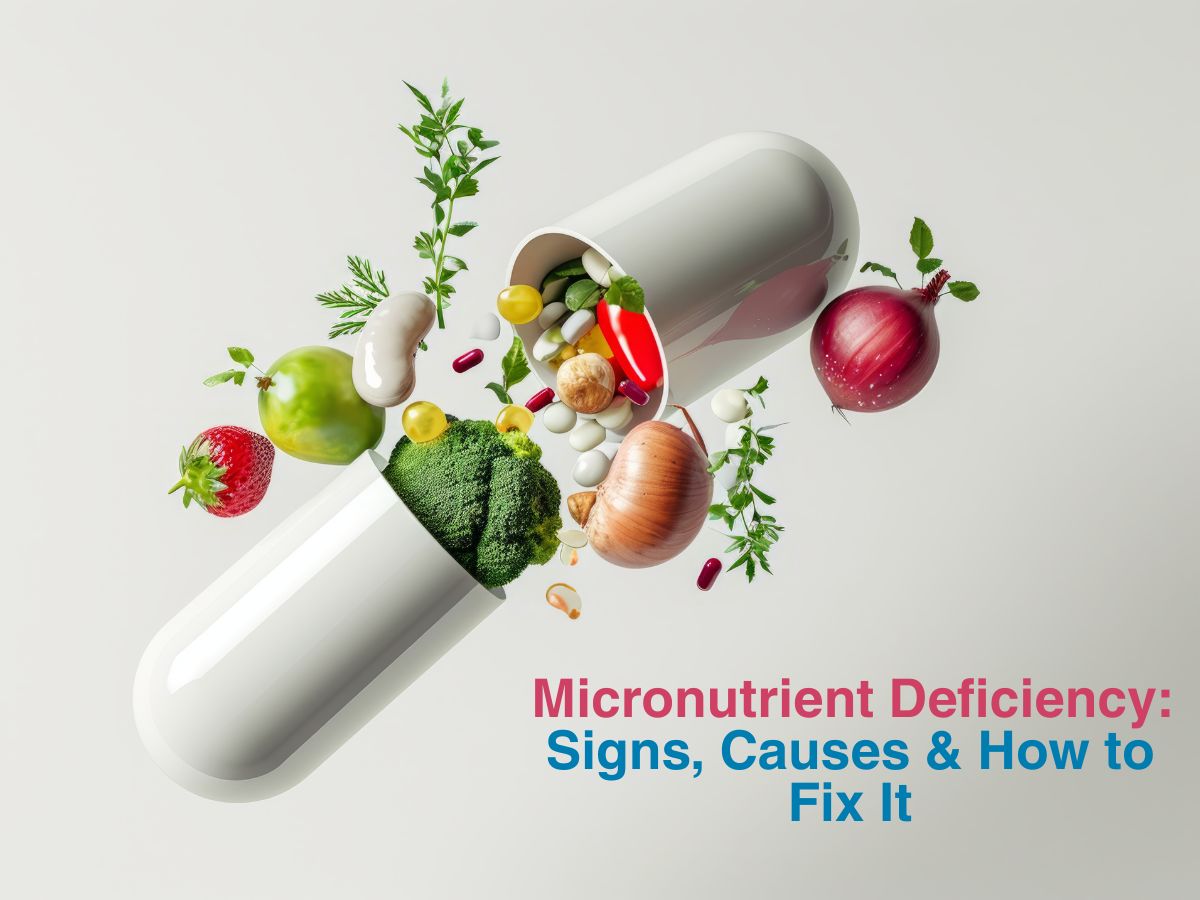
Micronutrient Deficiency: Signs, Causes & How to Fix It
Most of us know what macronutrients are and try to calculate how many calories we consume per day in the form of fats, carbs and proteins in an effort to either manage our weight, gain some kilos or lose a little. But, do you pay half as much attention when it comes to getting the right amounts of micronutrients, on a daily basis? Micronutrients are the vitamins and minerals and all other components you need in much tinier amounts, but that does not mean you can skip them because they seem unnecessary. Not consuming enough can cause your body to be in a constant state of ‘hidden hunger’.
Common Vitamin And Mineral Deficiencies
Some very common deficiencies which strike different age groups have been discussed below
- Vitamin D- This fat soluble vitamin is sort of a paradox- we live in a tropical country for sure and there is so much sun exposure throughout the year, but we Indians are pretty deficient in this vitamin. Over 0% of the Indian population is deficient.
- Vitamin D- This fat soluble vitamin is sort of a paradox- we live in a tropical country for sure and there is so much sun exposure throughout the year, but we Indians are pretty deficient in this vitamin. Over 0% of the Indian population is deficient.
- Vitamin B12– This water soluble B group of vitamins is very important for blood cell health and neuronal health, which means a severe deficiency can cause anaemia, neurological issues and even mood changes in a few extreme cases.
- Vitamin A Deficiency- This fat soluble vitamin is needed for good skin, hair and eye health and leads to poor immunity eventually.
- Iron– This mineral is a major issue with Indian women with respect to how many are deficient in it. Almost half the population is anaemic in some form and this can affect menstruation, pregnancy outcomes and cause other problems. Supplementing with iron can be a little dicey as levels can go up too quickly or it can cause constipation and hamper absorption of other minerals.
- Calcium– This mineral is needed for good bone health, brain function and heart function.
- Iodine– Deficiencies can cause your thyroid to malfunction. It can also cause mental retardation or developmental delays in children.
- Magnesium– Needed for good bone and teeth health, deficiency can lead to systemic diseases like metabolic syndrome, diabetes, heart disease or osteoporosis.
Causes Of Micronutrient Deficiency In Adults
Not eating a balanced diet on a daily basis can cause micronutrient deficiencies in the long run. Some individuals may eat enough but still have gut issues which can hamper absorption. They may have had surgical procedures too in the past. Older individuals need more micronutrients but may not have much of an appetite and so may eat less, causing deficiency. Some other causes may include food insecurities, taking certain medications which can alter how the gut works or when someone needs more nutrients- like during pregnancy and breastfeeding.
Symptoms Of Micronutrient Deficiency
Some of the most common symptoms include hair loss, brittle nails, feeling tired most of the time, skin problems, bleeding gums, mouth ulcers, vision issues etc. You may also have brittle bones or your wounds may take a long time to heal.
Conclusion
The long term effects of micronutrient deficiencies can be devastating, if not treated properly. It can affect your immunity and can increase the risk of suffering from chronic medical conditions. Deficiencies can cause physical impairment or slower growth, cognitive and neurological impacts. There is a higher risk of having to deal with heart conditions,digestive issues and can adversely impact fertility too. You may not be as productive as before because of the constant fatigue and this can affect your mental health too. So, pay attention to what you put on your plate, focus on getting enough nutrition and don’t just count calories.







